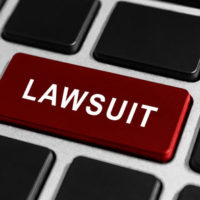Accidents With Uninsured Motorists In Florida

Florida has a no-fault system, designed to cut down on clogging the court dockets with car accident cases. This means that all drivers on the roads are required to carry a certain amount of insurance, so that claims can be paid relatively quickly and easily. However, there is a minority of drivers in Florida that either cannot afford the insurance or simply choose to do without, which means that there will be headaches for you if you are unfortunate enough to be in an accident with an uninsured driver. In this situation, contacting an experienced attorney may be of help to you.
Insurance Requirements
Florida law requires each driver to carry at least $10,000 in personal injury protection (PIP) coverage, and the same amount in property damage liability (PDL) insurance. This is to be used to settle car accident claims with insurers instead of in the courts. However, the Insurance Information Institute estimates that approximately one quarter of Florida’s drivers lack the required amount of insurance coverage. The penalties can be severe, resulting in possible license suspension or revocation, but for several different reasons, people continue to drive without insurance, causing potential problems for other drivers.
You may think that if you have your own PIP coverage, you will still be protected in the event of an accident, but that is only partially true. Florida PIP coverage is only legally required to cover 80 percent of all “reasonable expenses” for medically necessary care, and while that is a majority, the remaining 20 percent can and does add up, especially if the accident (and thus, your injuries) were particularly severe. Normally, the remaining 20 percent would be covered by the other driver’s insurance, and if they do not have any, there is no real recourse except to file suit.
Bringing Suit
Sometimes it may not be worth it to file suit against an allegedly negligent uninsured driver, simply because they may have few assets that you can reach in order to get your medical bills paid. However, the defendant is considered a debtor under Florida law, which means that you may be able to use certain legal procedures to collect on any award that you are given – for example, in Florida, you are permitted to garnish the defendant’s bank account or a part of their wages if the defendant refuses to pay.
In some cases, if the defendant has title to real property, you may also be able to put a debtor’s lien on anything except their homestead. Florida property law allows a person to claim their home as a ‘homestead,’ which renders it immune from liens and certain property taxes, but any other property (such as a vacation home, or an empty lot) is generally considered fair game.
Contact A Tampa Auto Accident Lawyer Today
Dealing with an auto accident usually means medical bills and recovery times, and if you have to deal with insurers and other legal headaches, it can feel overwhelming to try and recover for your injuries. The Tampa car accident lawyers at the Rinaldo Law Group can help. Contact our offices today for a free consultation.
Resource:
flhsmv.gov/insurance/
https://www.tampainjuryaccidentlaw.com/possible-major-changes-for-pip-insurance-on-the-horizon/
